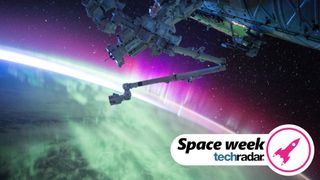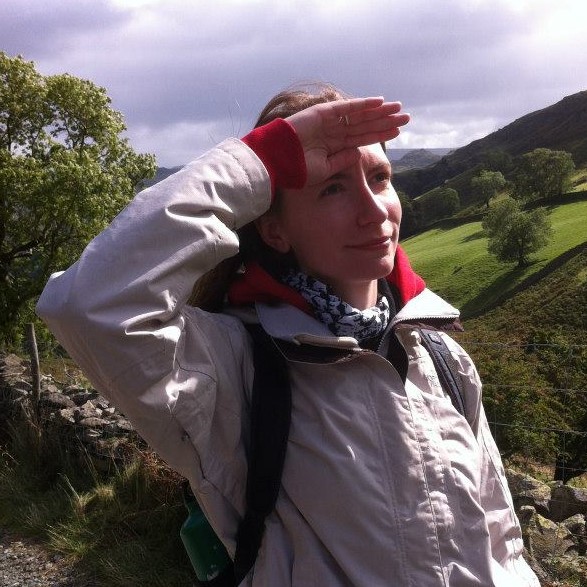
Welcome to TechRadar's first week dedicated to space exploration. 2019 is an exciting time for astronomy and space travel, with private companies pushing extraterrestrial travel to new levels, and space tourism finally becoming more than just a fantasy.
The stars have never been so close, so we've decided to spend a whole week looking at the technology that's making the universe a smaller place. For seven days we'll be boldly going throughout our solar system and beyond, and showing ways you can get involved and indulge your curiosity.
What's coming up
We'll look past Pluto and ask whether there's a Planet Nine in our solar system, explore the technology that's keeping astronauts sane on long voyages, and take a look at some audacious new ideas for space exploration.
Closer to home, we'll be showing you how to take great photographs of the moon, the Milky Way and the International Space Station, and sharing our guide to the best astronomy software for surfing the stars from your desktop.
Throughout the week, we'll also be keeping you up to date with all the latest news from the world of space travel and exploration.
We'll be posting each day's highlights on this page, so add it to your bookmarks and strap in – it's going to be a wild ride.
Monday
Are we getting closer to finding 'Planet Nine'?
It's at least five times bigger than Earth and it’s way beyond Pluto – but does it exist, and what does that mean for us?
Get daily insight, inspiration and deals in your inbox
Get the hottest deals available in your inbox plus news, reviews, opinion, analysis and more from the TechRadar team.
Fancy volunteering for a 60-day 'artificial gravity' bed rest study?
Researchers will investigate whether a daily spin in a centrifuge can undo the harmful effects of living in micro-gravity.
NASA is sending this tiny helicopter to Mars next year
The unmanned craft will make five flights in the Red Planet's harsh atmosphere, taking photos as it goes.
How to photograph the moon
The techniques you need to capture pictures full of detail.
Tuesday
NASA cancels all-female spacewalk due to lack of spacesuits that fit
Two women were supposed to carry out repairs together on the outside of the International Space Station, but the record books will have to wait.
Researchers want to look for water (and life) on Neptune's moon Triton
A spacecraft must get there soon, before the icy satellite is plunged into 80 years of darkness.
How to explore the galaxy in full 3D with Celestia
Take a spacewalk from your desktop, cruising through our solar system and light years beyond.
The citizen scientists helping NASA reveal a new Jupiter
Mathematicians, artists and software engineers have created a gallery of gorgeous images.
Wednesday
NASA considers sending a cave-diving robot to the moon
The space spelunker would explore deep beneath the lunar surface.
Israel's Beresheet lunar lander captures a stunning sunrise from space
The spacecraft is due to touch down on the moon on April 11, despite a few early hiccups following launch.
First China, then Israel – now India is landing on the moon in 2019
The Chandrayaan-2 mission, scheduled to lift off in the coming months, signals Asia’s grand space ambitions.
NASA's plans for six new space telescopes, all 'better than Hubble'
From sunshades and x-rays to finding life on exoplanets.
Thursday
Want to visit Mars? Take a virtual tour of the closest thing on Earth
Devon Island is uninhabited, rocky, bitterly cold, and so similar to the Red Planet that NASA uses it for training. Check it out for yourself via Google Earth.
Exploring the weird world of exoplanets
From a world where the skies rain glass to rocky Earth-like planets that might support life.
NASA's Spitzer Space Telescope captures beautiful 'space butterfly'
The stunning image shows a distant star nursery.
Why do we mourn our space robots?
Our surprising feelings for space-faring machines.
Friday
NASA's mini helicopter is ready to take to the Martian skies
The little chopper has completed test flights in simulated conditions, and its next takeoff will be on the Red Planet.
Hubble Telescope captures rare image of a disintegrating asteroid
The asteroid, Gault, is rotating twice per hour and spinning itself to pieces.
How to explore deep space with WorldWide Telescope
Microsoft's free planetarium software puts the universe at your fingertips.


Look out for this button. It'll take you back to this page, where you'll find links to all the week's news, features and tutorials as they're published.
Cat is the editor of TechRadar's sister site Advnture. She’s a UK Athletics qualified run leader, and in her spare time enjoys nothing more than lacing up her shoes and hitting the roads and trails (the muddier, the better)

